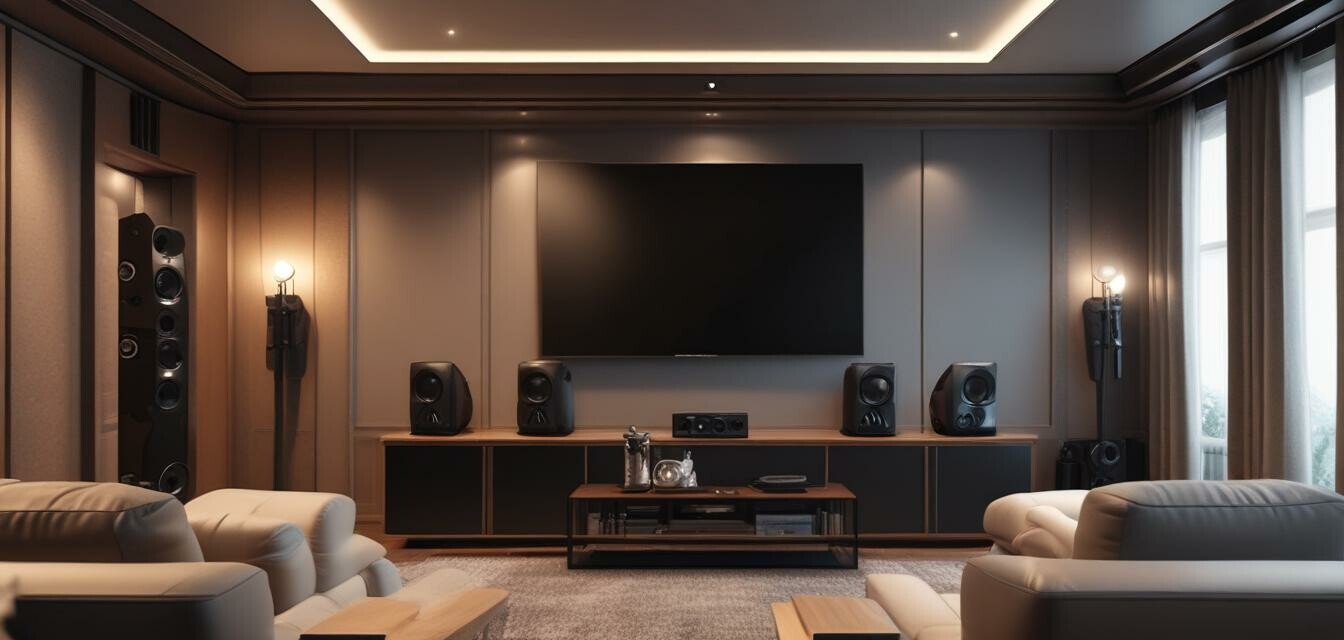
Selecting the Best High-End Speakers for Exceptional Sound
Key Takeaways
- Understanding your room size and acoustics is crucial.
- Explore different speaker types: floor-standing, bookshelf, and in-wall.
- Consider connectivity options for seamless integration with your home theater.
- Pay attention to the speaker specifications including power handling, frequency response, and sensitivity.
- Invest in speakers that can be easily upgraded or integrated with other components.
Choosing the best high-end speakers is a vital step in ensuring your home theater delivers an exceptional audio experience. High-end speakers question how well they resonate with your surroundings, the technology behind them, and their compatibility with other components. In this guide, we will break down the different types of speakers available, features to consider, and factors that make the greatest impact on sound quality.
Types of High-End Speakers
Before diving into features, it’s essential to understand the types of speakers available on the market. Here are the most common options:
| Speaker Type | Description | Ideal For |
|---|---|---|
| Floor-Standing Speakers | Tall, powerful speakers that produce rich bass and overall sound. | Large rooms needing significant audio output. |
| Bookshelf Speakers | Compact speakers that fit on shelves or stands without sacrificing sound quality. | Medium-sized rooms or for those lacking space. |
| In-Wall Speakers | Speakers installed in the wall to save space and reduce clutter. | Home theaters preferring a clean, minimalist look. |
| Subwoofers | Specializes in deep bass sounds, often paired with other speaker types. | Enhancing bass in any system configuration. |
Key Features to Look For
Once you have chosen the type of speaker, consider these features to ensure the best fit for your home theater setup:
- Power Handling: The amount of power a speaker can handle. Look for higher RMS ratings for better output.
- Frequency Response: The range of frequencies a speaker can reproduce, typically measured in Hertz (Hz). A wider range allows for more detailed audio.
- Sensitivity: Measured in decibels (dB), it dictates how loud a speaker will play at a given power level. Higher sensitivity means efficient sound output.
- Connectivity Options: Ensure compatibility with your other devices, whether through HDMI, optical, or wireless options.
Consider Your Room Size and Acoustics
The acoustics of your room can significantly affect sound quality. Before purchasing, consider:
- The size of the room—larger spaces typically require larger or more powerful speakers.
- The shape of the room and how sound resonates—rectangular rooms tend to have more even sound distribution.
- The materials used in your room’s construction—hard surfaces can reflect sound while soft furnishings absorb it, affecting overall audio quality.
Proven Sound Quality
When selecting high-end speakers, ensure they provide superior sound quality. Here are some top options:
5.1 CH Surround Sound Bar with Dolby Audio
This 5.1 channel surround sound system delivers an immersive auditory experience with Dolby Digital Plus technology and a powerful wireless subwoofer.
Learn MoreBudget and Future Upgrades
While investing in high-end speakers is essential for achieving great sound, also keep in mind your overall budget. High-quality systems often offer upgrade possibilities that allow for growth as technology advances.
Final Considerations When Choosing Your Speakers
As you finalize your decision, here are some last-minute factors to keep in mind:
- Always test speakers using audio that you are familiar with.
- Check the warranty and customer service provided by the brand.
- Consider reviews and testimonials from other users.
Conclusion
Choosing high-end speakers can seem daunting, but understanding the different types and critical features will empower you to make informed decisions. By assessing your room’s acoustics, planning for future upgrades, and ensuring that your speakers can integrate seamlessly with your home theater setup, you’ll be on the path to achieving exceptional sound. For more tips on enhancing your home audio experience, explore our high-end speaker system resource guide.
Tips for Beginners
- Don't rush—take your time to audition different speakers.
- Ask for recommendations from friends or experts.
- Keep the receipts! Good speakers can last a long time.
- Invest in good quality cables and connections for better performance.


